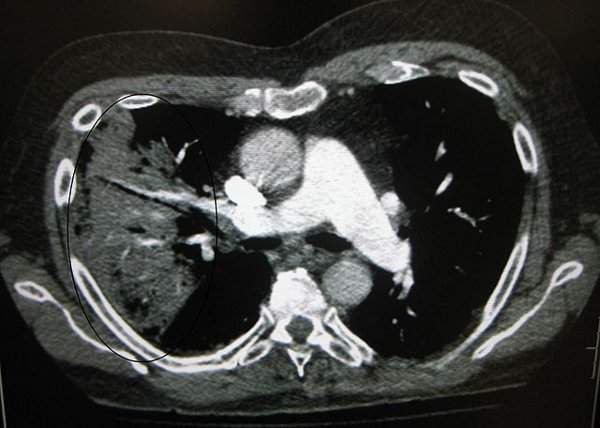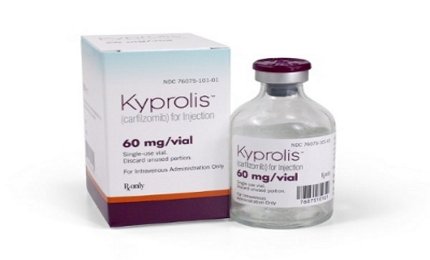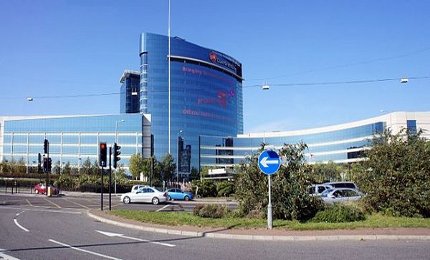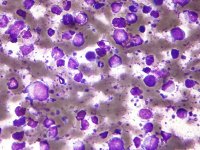

GSK begins Phase III programme to evaluate retosiban for spontaneous preterm labour

GlaxoSmithKline (GSK) initiated a Phase III programme to evaluate the efficacy and safety of retosiban, an investigational oxytocin antagonist, currently being developed to improve neonatal outcomes of babies born to women in spontaneous preterm labour by prolonging the time to delivery.

Discover B2B Marketing That Performs
Combine business intelligence and editorial excellence to reach engaged professionals across 36 leading media platforms.
Under the Phase III programme, the first trial to be conducted is designed to show the efficacy and safety of retosiban in women with spontaneous preterm (premature) labour when compared with atosiban, an oxytocin/vasopressin antagonist.
A premature birth is when a baby is born at least three weeks before the expected due date and these babies require special care to stay alive.
Amgen and Onyx’s multiple myeloma drug Kyprolis meets primary endpoint in Phase III trial
Amgen and its subsidiary Onyx Pharmaceuticals reported positive results from a Phase III head-to-head ENDEAVOR trial of Kyprolis (carfilzomib) for Injection in combination with low-dose dexamethasone versus Velcade (bortezomib) and low-dose dexamethasone in patients with relapsed multiple myeloma.
The planned interim analysis shows that the Phase III trial met the primary endpoint of progression-free survival (PFS).

US Tariffs are shifting - will you react or anticipate?
Don’t let policy changes catch you off guard. Stay proactive with real-time data and expert analysis.
By GlobalDataThe trial showed that multiple myeloma patients treated with Kyprolis lived twice as long without their disease worsening as well as showed statistically and clinically significant superiority over Velcade.
La Jolla begins Phase IIb trial of GCS-100 to treat advanced CKD
US-based biotechnology firm La Jolla Pharmaceutical started a Phase IIb clinical trial of its galectin-3 inhibitor, GCS-100, to treat advanced chronic kidney disease (CKD) caused by diabetes.
Around 375 diabetic patients with Stage 3b or 4 CKD will be enrolled in the double-blind, multi-centre, placebo-controlled, randomised Phase IIb trial of GCS-100.
During the trial, patients will be randomised 1:1:1:1 to receive fixed doses of GCS-100 (1mg, 3mg or 9mg) or placebo through IV injection once a week for eight weeks and then once every other week for an additional 16 weeks.
Celgene reports positive results from Phase III LIBERATE trial of plaque psoriasis drug Otezla
US-based pharmaceutical firm Celgene reported positive results from an ongoing Phase III LIBERATE trial of its oral, selective inhibitor of phosphodiesterase 4 (PDE4), Otezla (apremilast), in patients with moderate to severe plaque psoriasis.
A total of 250 patients who had no prior exposure to a biological therapy were included in the LIBERATE trial, which evaluated the clinical efficacy and safety of either oral Otezla 30mg twice daily or weekly subcutaneous (SC) etanercept 50mg compared with placebo at week 16.
LIBERATE is a Phase IIIb, multicentre, randomised, placebo-controlled, double-blind, double-dummy trial and its primary objective was to evaluate the clinical efficacy and safety of oral Otezla 30mg twice daily compared with placebo at week 16.
Immunovaccine begins Phase II trial of lymphoma drug DPX-Survivac

Clinical-stage vaccine development firm Immunovaccine started dosing in a Phase II clinical trial with its lead cancer immunotherapy, DPX-Survivac, in patients with diffuse large B cell lymphoma (DLBCL).
The company-sponsored trial is designed to evaluate the efficacy of DPX-Survivac in combination with oral cyclophosphamide, an immune modulating agent, in these patients.
DPX-Survivac is designed to activate killer T cells of the immune system against the survivin antigen found in a variety of solid tumours and blood cancers.
Therapure gets FDA nod to begin Phase I trial of liver cancer therapy TBI 302

Therapure Innovations received approval from the US Food and Drug Administration (FDA) to begin a Phase I clinical trial of TBI 302, a targeted therapeutic for the treatment of liver cancer.
According to the company, TBI 302 is the first drug to emerge from its targeted drug delivery platform, which takes advantage of the natural clearance pathway of haemoglobin predominantly through the liver.
TBI 302 includes a chemotherapy drug floxuridine attached to haemoglobin, which serves as the drug carrier and targeting agent.
ORYX completes Phase I/IIa trial of MicOryx vaccine in MSH-H colorectal cancer patients

German biotech firm ORYX completed a Phase I/IIa trial of the therapeutic vaccine, MicOryx, to treat patients with advanced microsatellite instable (MSI-H-) colorectal cancer.
The open label, single centre trial included 22 patients (UICC stage III or IV), who had received standard chemotherapy.
The trial’s Phase I part evaluated safety and toxicity as the primary endpoint in six patients, while Phase IIa assessed the induction of cellular and humoral immune responses against MicOryx in 16 patients evaluated by CT or MRI scans according to RECIST.
Aridis begins Phase I trial of Aerucin monoclonal antibody to treat acute pneumonia

US-based Aridis Pharmaceuticals started a Phase I clinical trial of Aerucin, the company’s fully human IgG1 monoclonal antibody (mAb) against Pseudomonas aeruginosa bacteria, to treat patients with acute pneumonia.
Aerucin, which is being developed as an adjunctive treatment for acute pneumonia, directly binds the polysaccharide alginate, widely expressed on the cell surface of P. aeruginosa, leading to complement deposition and improved immune recognition.
The single ascending dose safety and pharmacokinetics Phase I trial in healthy volunteers is expected to be completed in the fourth quarter of this year.





